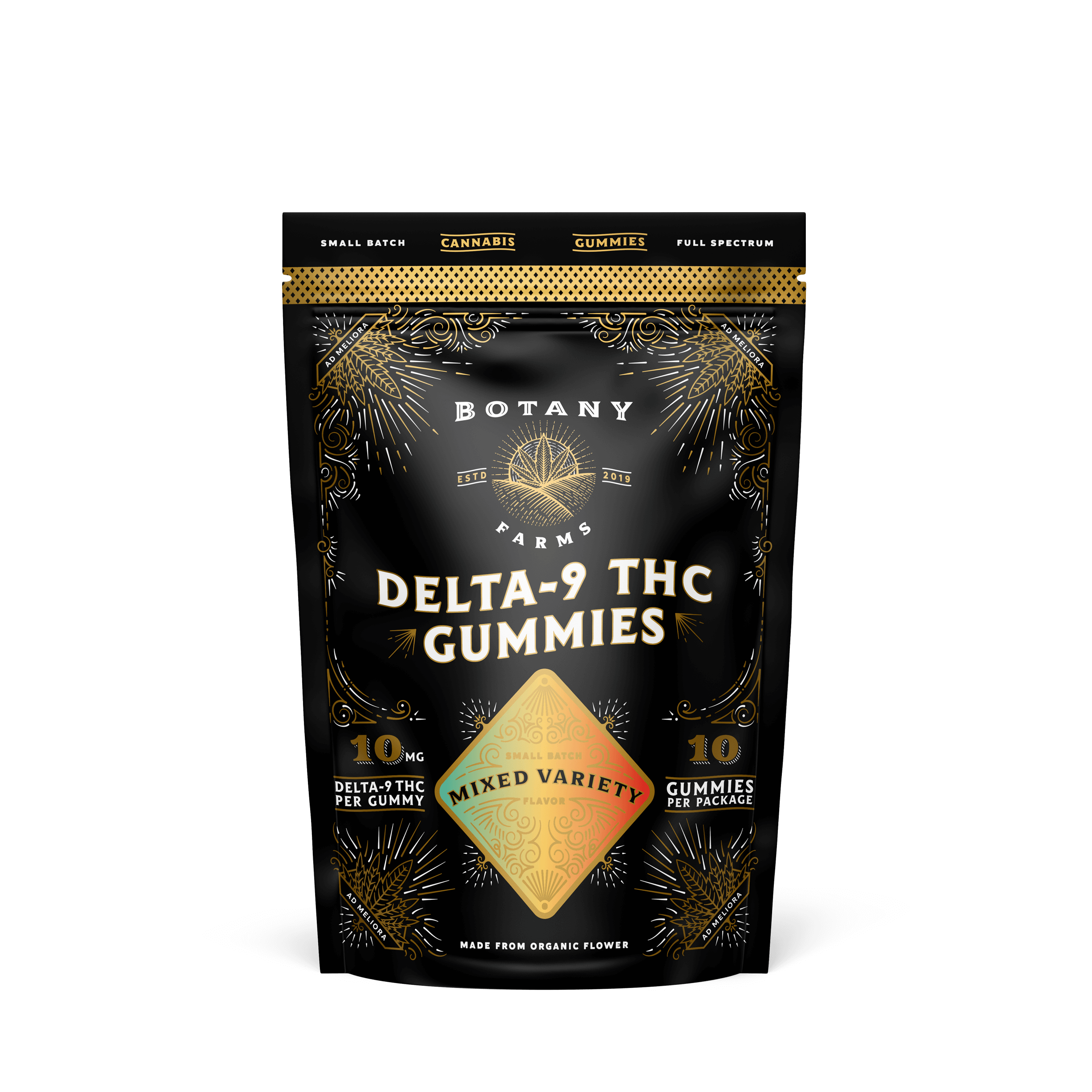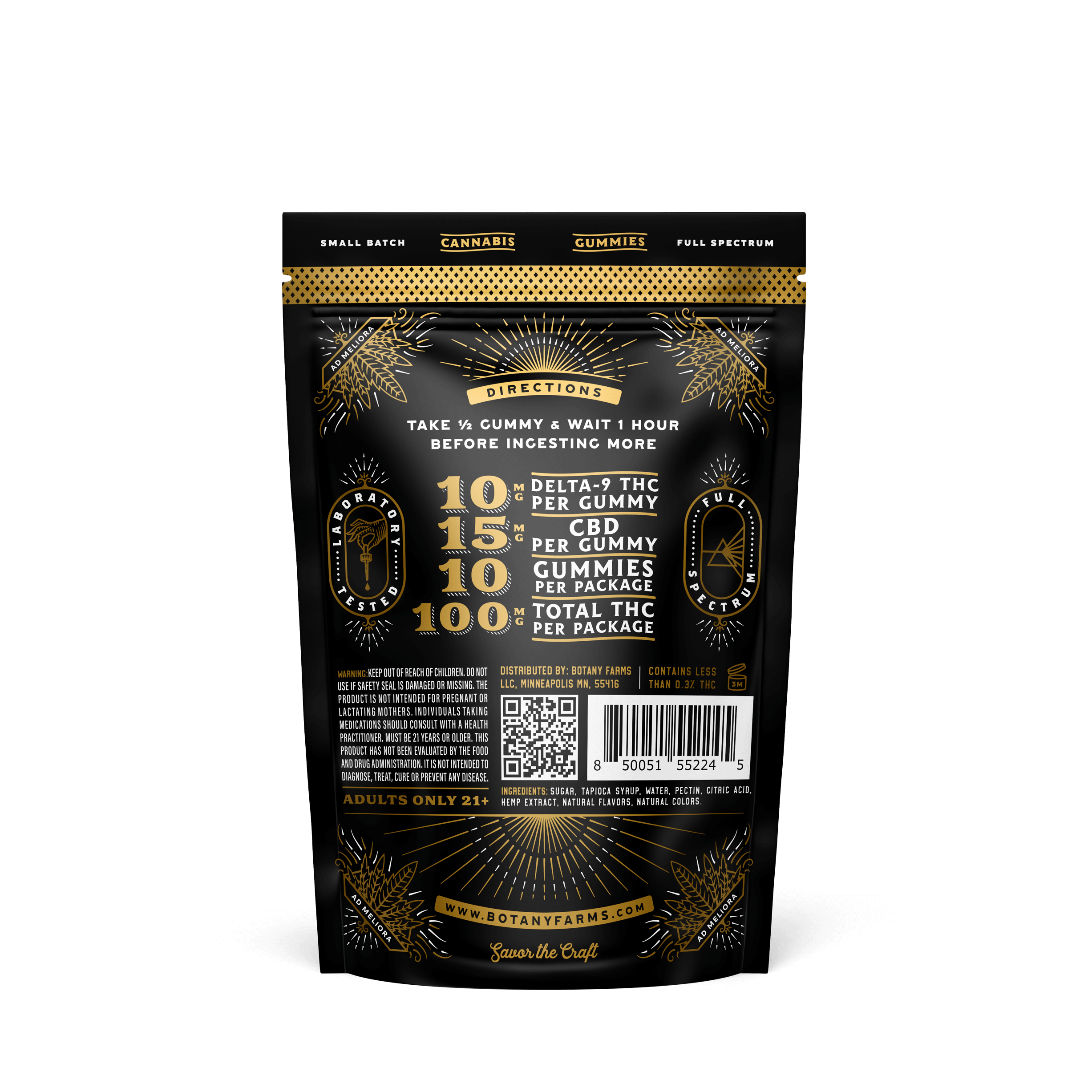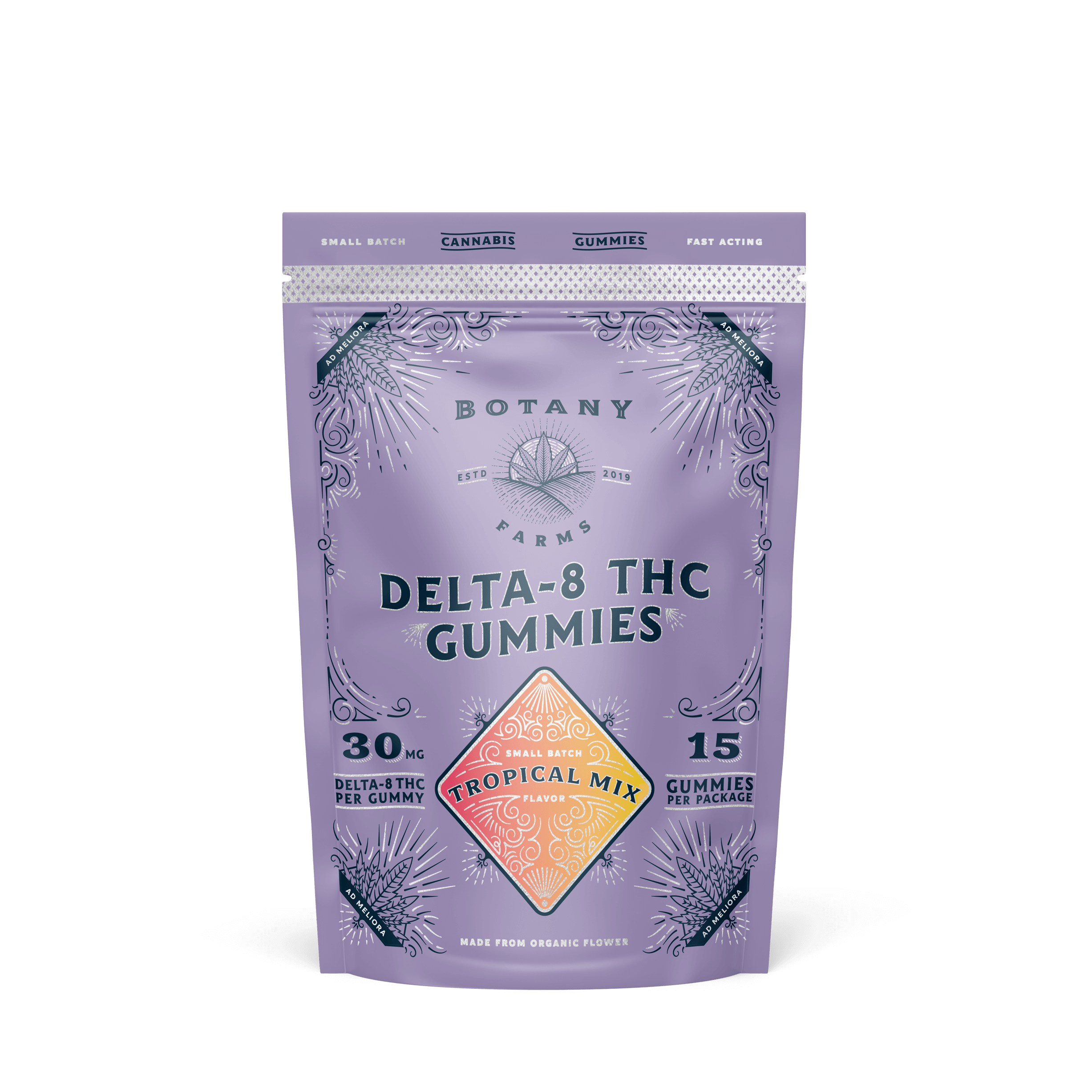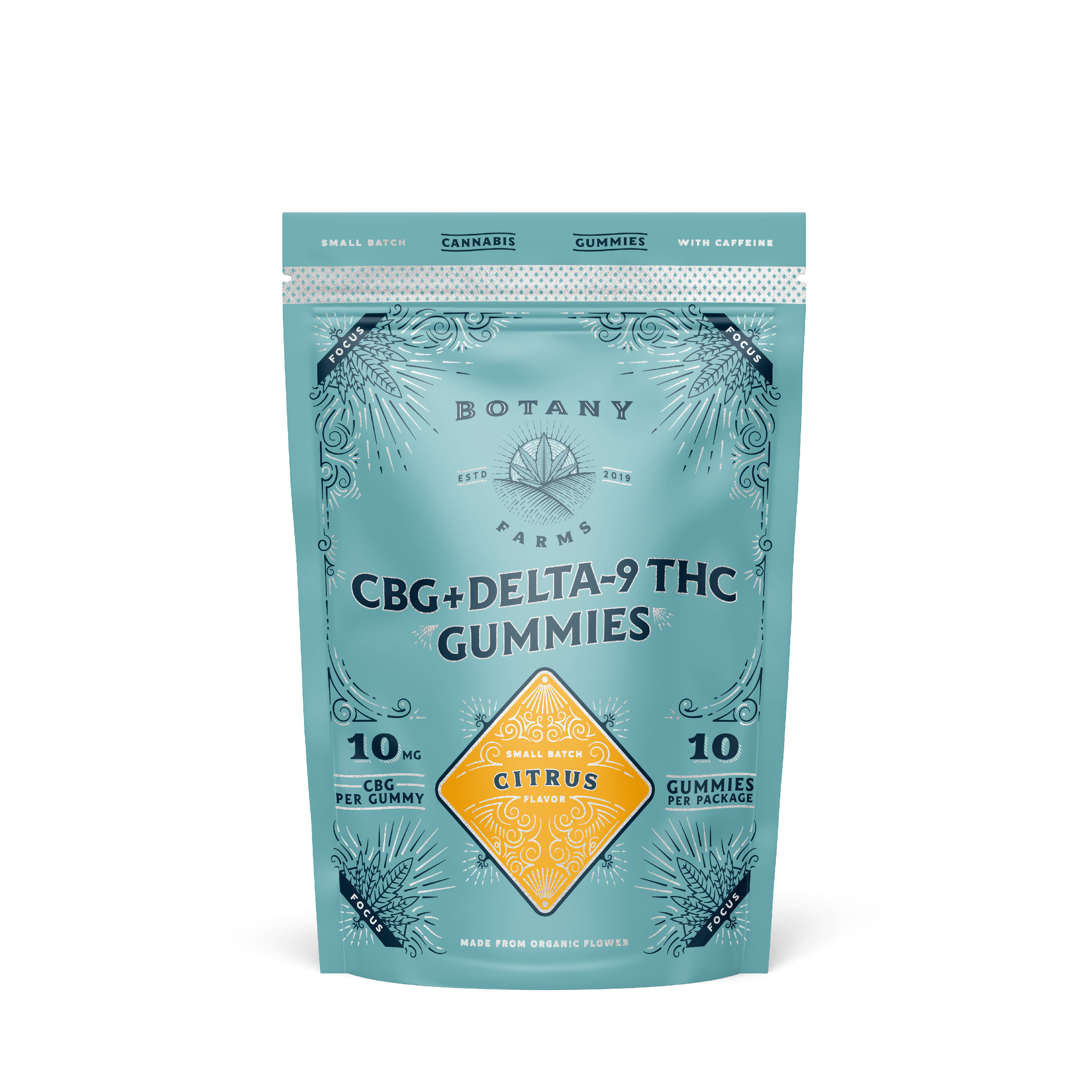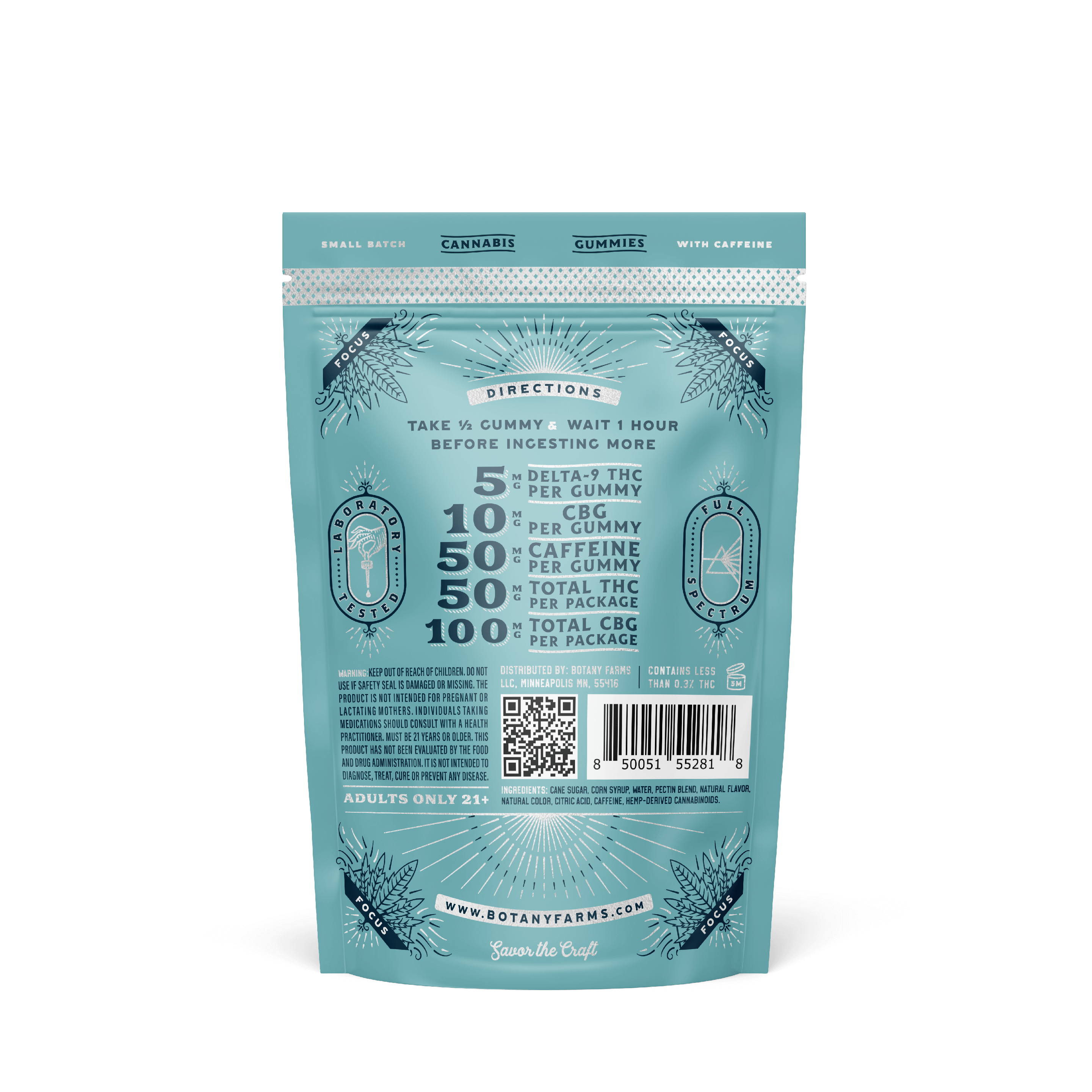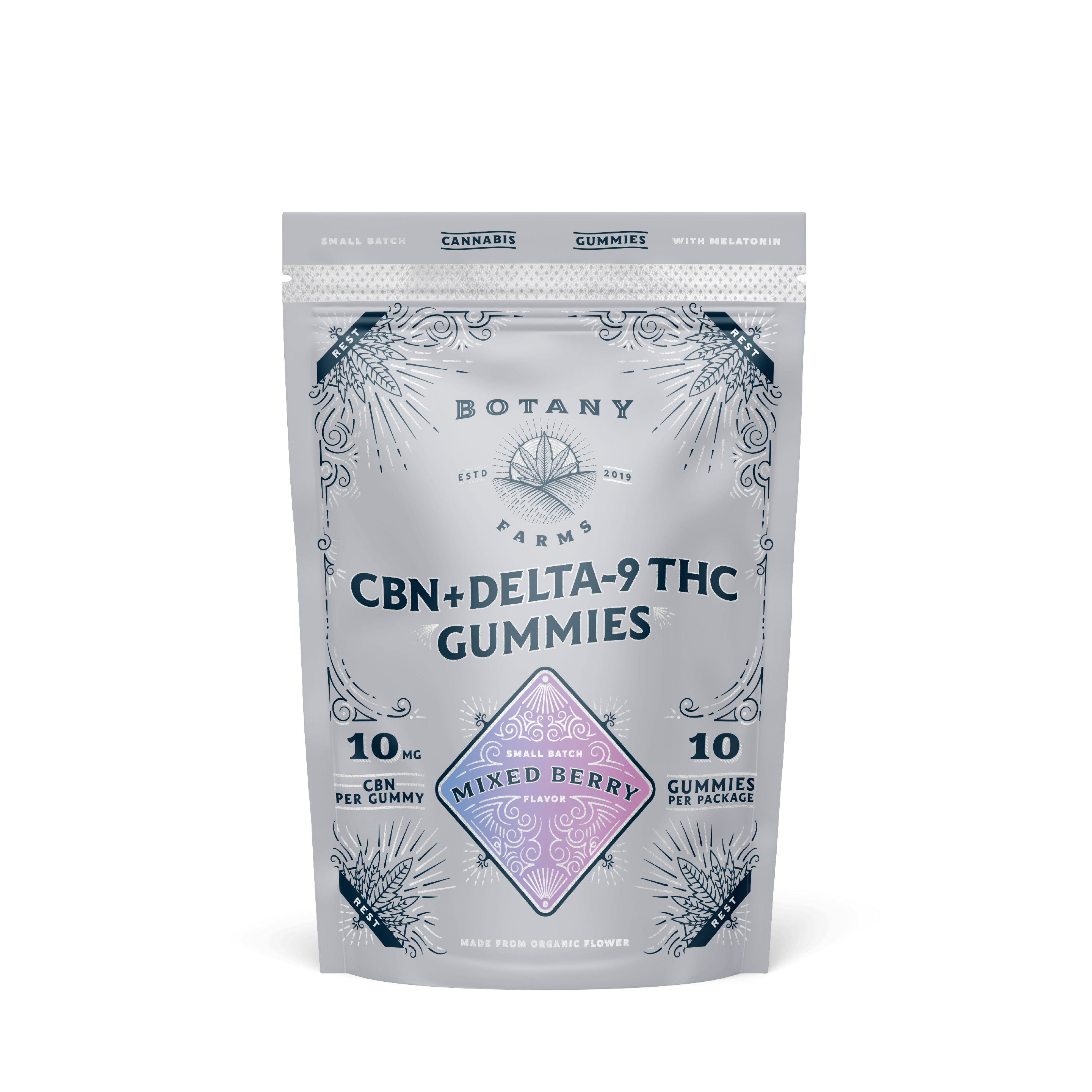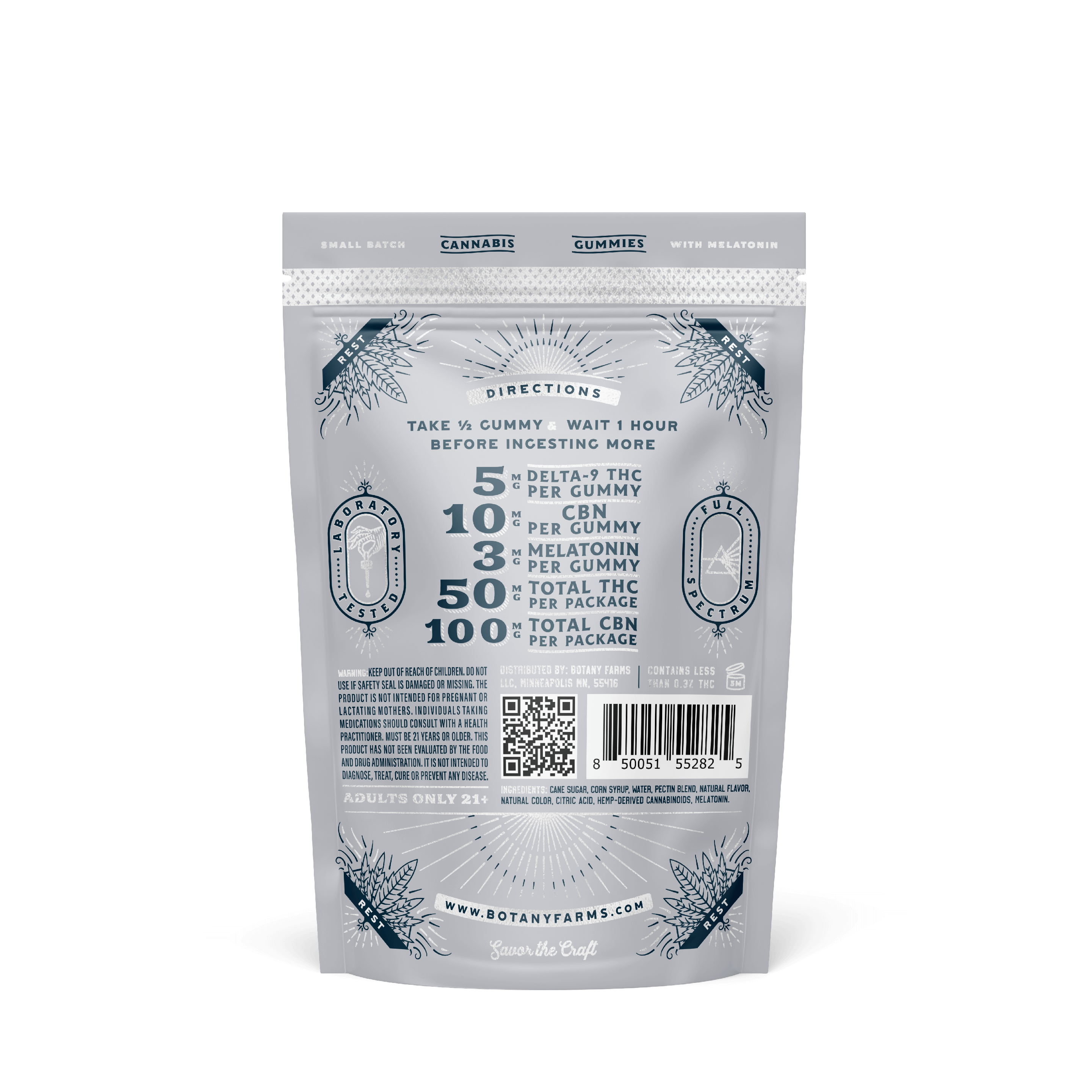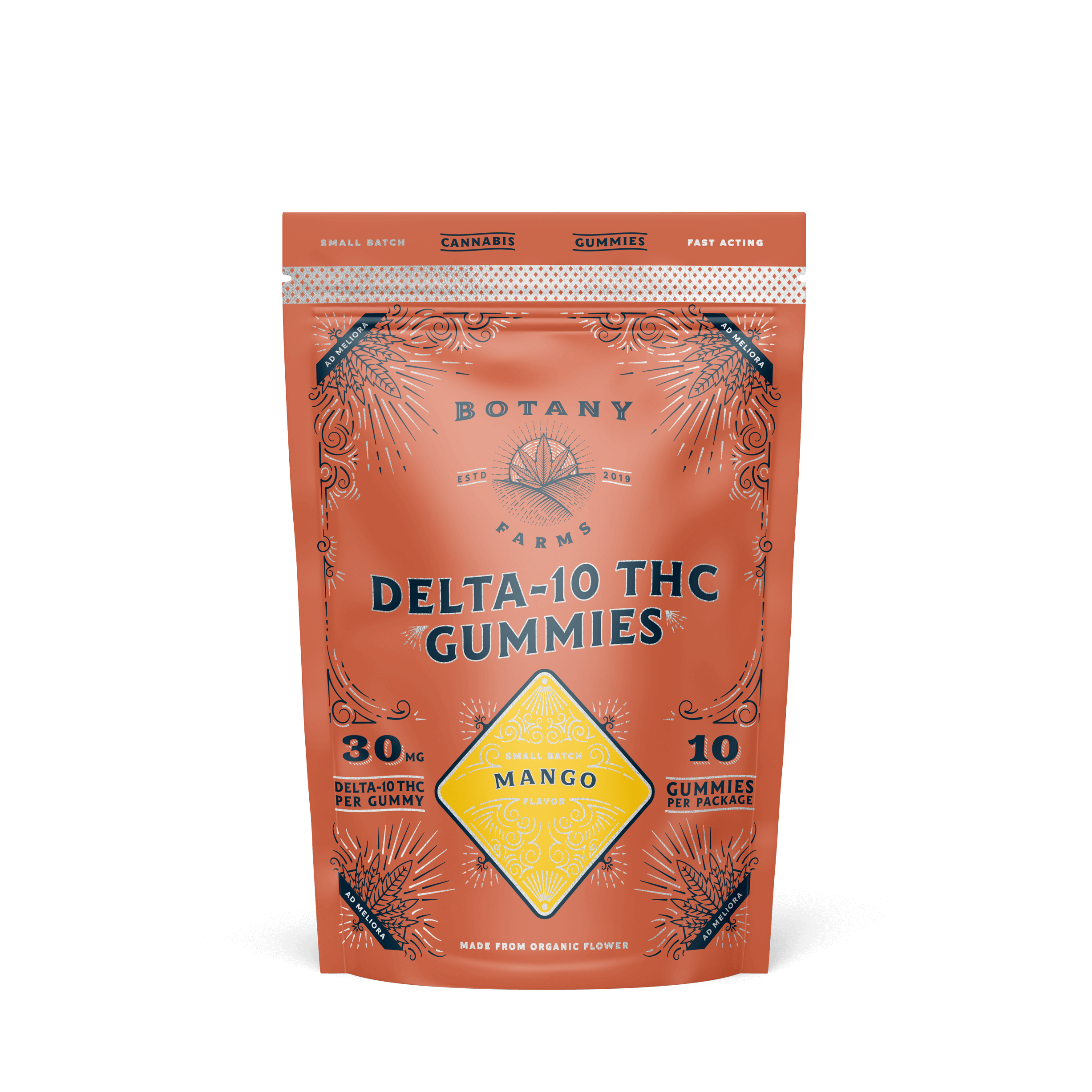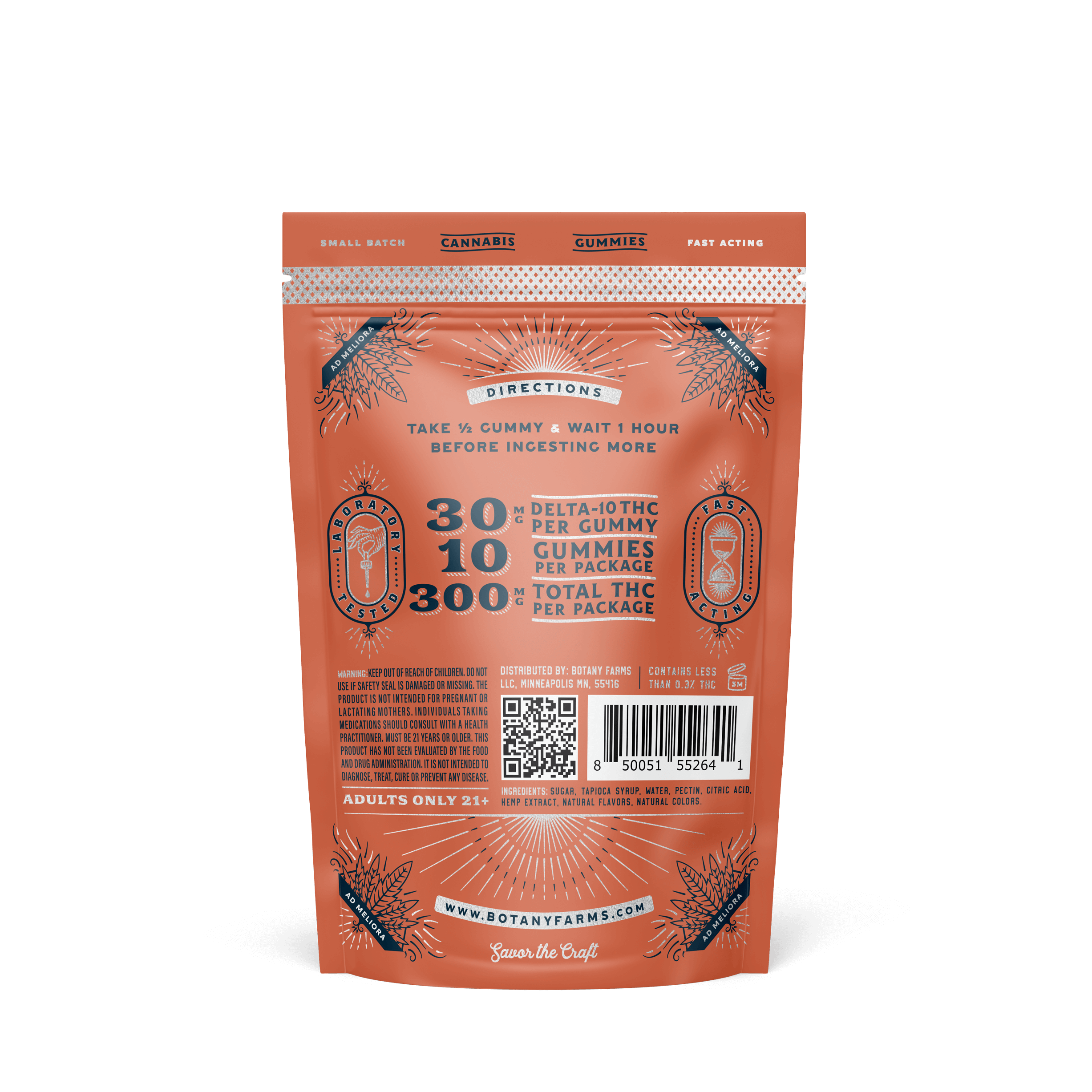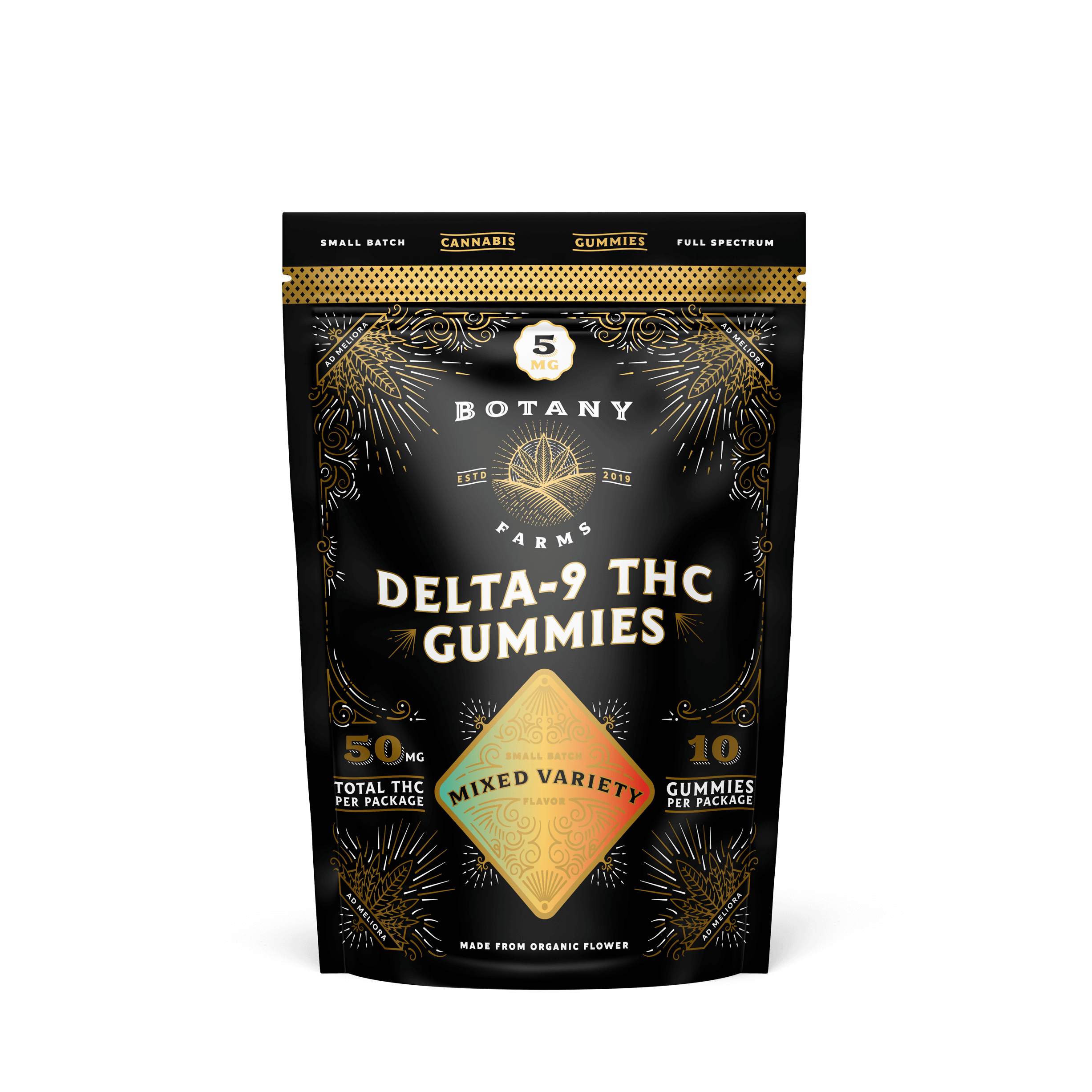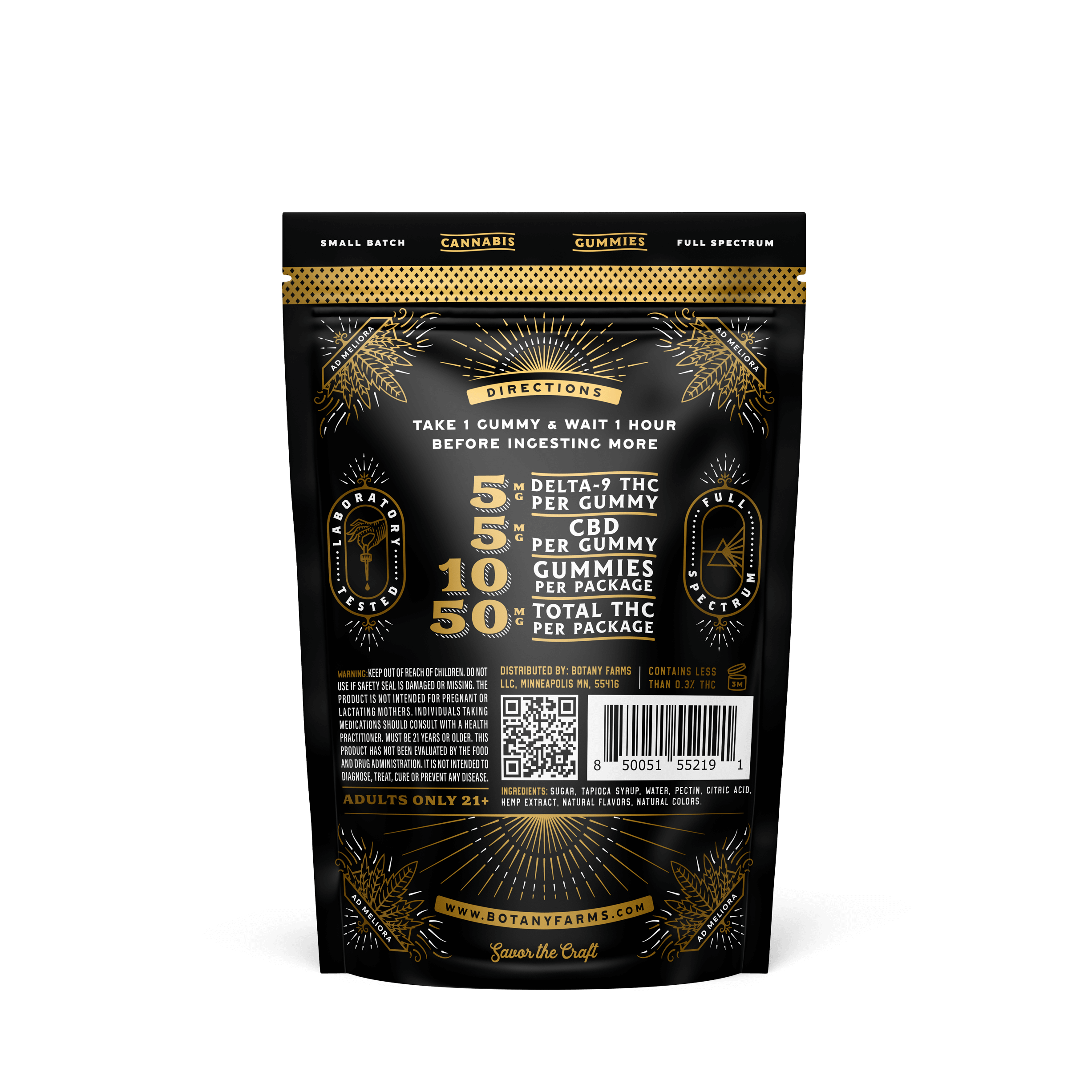- Key Takeaways
- What are Cannabinoids?
- Are Cannabinoids Anti-Inflammatory?
- How Do Cannabinoids Help with Inflammation?
- THC vs CBD vs CBN vs CBG: How Do They Compare?
- Delta 8 vs Delta 9 vs Delta 10 - How Do They Compare?
- Does the Delivery Method Make a Difference?
- So, Which Cannabinoid is Best for Inflammation?
- Final Thoughts
- Where to Find a Wide Selection of Cannabinoids Online
Inflammation is an issue that affects millions across the U.S., from arthritis to cardiovascular issues to inflammatory bowel disease. While the pharmaceutical companies have gotten all of their ducks in a row, many people are also exploring alternative and more natural options to ease their aches and pains.
The cannabis industry is growing exponentially, creating more and more personalized and specialized cannabis experiences. Playing around with cannabinoids is one of the big ways the weed world is doing this, and studies are giving us hopeful results. Let’s explore how to say goodbye to inflammation and get a little more educated along the way.
Key Takeaways
- Some cannabinoids, like CBD, CBG, THC, and CBN, may have potential anti-inflammatory effects.
- There are over a hundred different cannabinoids in cannabis.
- Different cannabinoid products are becoming increasingly popular.
- Hemp-derived cannabinoid products are federally legal due to the 2018 Farm Bill.
What are Cannabinoids?
While you’ve definitely heard about cannabinoids, do you know what they are? To keep it simple, cannabinoids are natural compounds that you find in the cannabis plant. Every cannabinoid interacts differently with your endocannabinoid system and can have different effects and benefits.
Are Cannabinoids Anti-Inflammatory?
There are still some things we don’t know about cannabinoids, but we’re learning every day. Research has suggested that some cannabinoids can have anti-inflammatory effects when making contact with the endocannabinoid system, like CBD, CBG, and THC.
How Do Cannabinoids Help with Inflammation?
If all the studies are right, some cannabinoids have the potential to be great anti-inflammatory agents. So how exactly does it all work? It starts off with the interaction between the cannabinoids and the endocannabinoid system: the effects range from inhibiting pro-inflammatory molecules and the modulation of immune cell activity to the inhibition of inflammatory enzymes and antioxidative properties.
Cannabinoids, such as THC, modulate inflammation as well, acting on cannabinoid receptors (CB1 and CB2) on immune cells. THC binds to CB2 receptors on immune cells, for example, inhibiting the release of pro-inflammatory cytokines, and enhancing the release of anti-inflammatory cytokines, thereby moderating inflammation in rheumatoid arthritis and multiple sclerosis.
Although CBD doesn’t attach itself directly to either CB1 or CB2 receptors, it promotes other, non-cannabinoid receptors and ion channels that are responsible for some of its anti-inflammatory effects. It has been shown to reduce levels of cytokines, and to inhibit the growth of T-cells, which are central to autoimmune and systemic inflammatory disorders.
For example, a study in the Journal of Experimental Medicine showed that CBD reduced chronic inflammation and pain in some mice and rats by a significant amount, and may have the same effects on people; and a later study found that CBD could decrease inflammation in the pancreas, helping control Type 1 diabetes.
These results show that cannabinoids could be a novel anti-inflammatory drug, and could be used as an alternative to traditional anti-inflammatory drugs, which are often highly toxic, through a different mechanism. However, more clinical trials are required to assess the therapeutic potential and safety profile of cannabinoids in the management of inflammation.Best Cannabinoids for Inflammation
Because cannabinoids are experiencing a boom in the cannabis world, it’s important for you to have the information and tools to know exactly what you’re getting into. Let’s get into a quick little masterclass on some of the most popular of over a hundred cannabinoids.
Tetrahydrocannabinol (THC)
- Effects: Psychoactive
- Anti-Inflammatory: Yes
- Research: Inhibits pro-inflammatory molecules
- Notes: Best with CBD
Tetrahydrocannabinol, or Delta 9 Tetrahydrocannabinol, better known as THC, is arguably the best-known cannabinoid and the one famous for getting people high as a kite. While some research has suggested that THC may help with inflammation, it's best blended with CBD for a more specialized anti-inflammatory experience.
Research suggests Tetrahydrocannabinol (THC) may alleviate inflammation through various mechanisms. One study published in the European Journal of Pharmacology found that THC reduced inflammation in mice by inhibiting the release of pro-inflammatory molecules. Another study in the Journal of Neuroimmune Pharmacology showed THC's ability to decrease inflammation associated with autoimmune diseases like multiple sclerosis by modulating immune responses.
Additionally, research in the British Journal of Pharmacology indicates THC's potential to suppress inflammatory responses in the gastrointestinal tract, offering relief for conditions like Crohn's disease. These findings highlight THC's promising role in combating inflammation, offering potential therapeutic benefits for various inflammatory conditions.
Cannabidiol (CBD)
- Effects: Non-psychoactive
- Anti-Inflammatory: Yes
- Research: Suppresses cytokine production
- Notes: Extensively researched
Another popular cannabinoid is cannabidiol, more commonly known as CBD. THC’s kid-friendly cousin isn’t psychoactive but has been extensively researched due to its many potential therapeutic benefits. Within these benefits, CBD has also shown promise as an anti-inflammatory agent.
Cannabidiol (CBD) has been studied extensively for its potential anti-inflammatory properties. Research published in the Journal of Clinical Investigation suggests that CBD may reduce inflammation by suppressing cytokine production and inducing T-regulatory cells, which help regulate the immune system.
Another study in the European Journal of Pain demonstrated CBD's ability to alleviate inflammation and pain in animal models of arthritis through its interaction with cannabinoid receptors.
Moreover, a review article in Biochemical Pharmacology highlighted CBD's potential to modulate inflammatory responses in various conditions, including inflammatory bowel disease and neuroinflammatory disorders.
These studies indicate that CBD holds promise as a natural anti-inflammatory agent with therapeutic potential across a range of inflammatory conditions.
Cannabinol (CBN)
- Effects: Minimal psychoactivity
- Anti-Inflammatory: Potential, more research needed
- Research: Reduced inflammation in arthritis models
- Notes: Benefits for arthritis, neuroinflammation
Cannabinol, or CBN, is next in line. This minor cannabinoid has potential anti-inflammatory benefits, although more studies need to be done. Still, many people turn to CBN and other cannabinoids for conditions like arthritis, neuroinflammation, and skin inflammation.
Research on Cannabinol (CBN) and its anti-inflammatory effects is relatively limited compared to THC and CBD. However, some studies suggest potential benefits. One study published in the Journal of Pharmacy and Pharmacology found that CBN reduced inflammation in animal models of arthritis by inhibiting the production of inflammatory mediators.
Another study in the European Journal of Pharmacology indicated that CBN may exert anti-inflammatory effects through its interaction with cannabinoid receptors in the body's endocannabinoid system. Additionally, a study in the Journal of Ethnopharmacology suggested that CBN could alleviate inflammation associated with allergic airway disease.
While more research is needed to fully understand CBN's anti-inflammatory mechanisms and its potential therapeutic applications, these findings provide preliminary evidence of its promising role in inflammation management.
Cannabigerol (CBG)
- Effects: Minimal psychoactivity
- Anti-Inflammatory: Yes
- Research: Reduced inflammation in bowel disease
- Notes: Promising results in inflammation
Cannabigerol, or CBG, has given us many hopeful preliminary results in studies about being an anti-inflammatory agent. It seems to inhibit pro-inflammatory molecules and modulate immune responses when it interacts with the endocannabinoid system.
Research on Cannabigerol (CBG) and its anti-inflammatory properties is emerging and promising. A study published in the Journal of Pharmacology and Experimental Therapeutics showed that CBG reduced inflammation in a mouse model of inflammatory bowel disease by modulating the activity of cannabinoid receptors and inhibiting the production of pro-inflammatory molecules.
Another study in the International Journal of Molecular Sciences demonstrated CBG's anti-inflammatory effects in a model of neuroinflammation, suggesting its potential for managing conditions like Parkinson's disease and multiple sclerosis. Additionally, research published in the Journal of Natural Products highlighted CBG's ability to inhibit inflammation associated with skin disorders like psoriasis.
These studies indicate that CBG holds therapeutic potential as a natural anti-inflammatory agent, warranting further investigation into its mechanisms and clinical applications.
Hexahydrocannabinol (HHC)
- Effects: Unknown
- Anti-Inflammatory: Limited information
- Research: Interacts with CB1 and CB2 receptors
- Notes: Needs more research
Tetrahydrocannabivarin (THCV)
- Effects: Unknown
- Anti-Inflammatory: Limited but promising
- Research: Modulates cannabinoid receptors
- Notes: Not primarily anti-inflammatory
Tetrahydrocannabivarin is quite a word, so it’s probably best to stick to the THCV nickname. While it doesn’t seem to be an anti-inflammatory agent, it seems to help in other areas, like energy stimulation and neuroprotective properties.
Studies on Tetrahydrocannabivarin (THCV) and its anti-inflammatory properties are limited but promising. Research published in the British Journal of Pharmacology suggests that THCV may reduce inflammation by modulating cannabinoid receptors and interacting with other molecular pathways involved in immune responses.
Another study in the Journal of Pharmacology and Experimental Therapeutics demonstrated THCV's anti-inflammatory effects in animal models of inflammatory bowel disease, indicating its potential for managing gut inflammation.
Additionally, research in the Journal of Natural Products showed THCV's ability to alleviate inflammation and pain in animal models of arthritis. While further research is needed to fully elucidate THCV's mechanisms and therapeutic potential in inflammation, these findings suggest that THCV may offer novel therapeutic opportunities for inflammatory conditions.
Delta-8-Tetrahydrocannabinol
- Effects: Less psychoactive than Delta-9
- Anti-Inflammatory: Yes, limited research
- Research: Modulates immune responses
- Notes: Analgesic effects
Delta 8 Tetrahydrocannabinol, often known as Delta 8, is very similar in structure to Delta 9 THC, which is usually just known as THC. It’s a bit less psychoactive but can have similar effects and possible anti-inflammatory and analgesic effects.
Research on Delta-8-Tetrahydrocannabinol (Delta-8-THC) and its anti-inflammatory properties is limited compared to other cannabinoids. However, some studies suggest potential benefits. A study in the European Journal of Pharmacology indicated that delta-8-THC reduced inflammation in mice by modulating immune responses and inhibiting the production of inflammatory molecules.
Another study in the Journal of Experimental Medicine suggested Delta-8-THC's potential to alleviate inflammation associated with autoimmune diseases like rheumatoid arthritis. Additionally, research in the Journal of Clinical Investigation showed Delta-8-THC's ability to suppress inflammation and pain in animal models of neuropathic pain.
While more research is needed to fully understand Delta-8-THC's anti-inflammatory mechanisms and clinical applications, these preliminary findings suggest its potential as a therapeutic agent for inflammation-related conditions.
Delta-10-Tetrahydrocannabinol
- Effects: Mild psychoactivity
- Anti-Inflammatory: Limited research
- Research: Similar to other cannabinoids
- Notes: Needs more comprehensive studies
Another chemical cousin of THC is Delta 10 Tetrahydrocannabinol. It’s naturally occurring in small amounts in cannabis plants and has mild psychoactive effects. While it might have anti-inflammatory and analgesic effects, it’s yet to be definitively studied.
Research specifically focused on Delta-10-Tetrahydrocannabinol (Delta-10-THC) and its anti-inflammatory properties is limited, as it is a relatively lesser-known cannabinoid compared to others.
Currently, there is a lack of comprehensive studies investigating Delta-10-THC's effects on inflammation. However, based on the general understanding of cannabinoids and their interactions with the endocannabinoid system, it is plausible that Delta-10-THC may also possess anti-inflammatory properties similar to other cannabinoids like Delta-9-THC and CBD.
Further research is needed to elucidate the potential anti-inflammatory effects of Delta-10-THC and its mechanisms of action.
THC vs CBD vs CBN vs CBG: How Do They Compare?
Cannabis can have all the cannabinoids: THC, CBD, CBN, CBG, and many more. Although some are similar, there’s a reason why we differentiate them. So how are they different from each other? THC is the most well-known psychoactive cannabis compound. If you’ve ever gotten high off of a joint in a parking lot somewhere, you’re probably familiar with THC.
It has been widely studied and has potential analgesic, anti-inflammatory, and antiemetic benefits, along with strong psychoactive effects. CBD is not psychoactive, which means it won’t get you high. However, CBD is the cannabinoid most used for therapeutic reasons, with many studies talking about its potential anti-inflammatory, analgesic, anxiolytic, neuroprotective, and other effects.
CBD is generally considered safe and is the most popular cannabis consumed. CBN is a minor cannabinoid that hasn’t made much of a splash, but it’s recently been growing in popularity. This cannabinoid might not have strong psychoactive effects, but it is known for its sedative benefits that help people relax and get a full night’s sleep.
CBG is another minor cannabinoid that isn’t completely famous yet, although it’s slowly changing. It’s thought to have anti-inflammatory, antibacterial, and neuroprotective effects that could potentially help people with various health issues.
Delta 8 vs Delta 9 vs Delta 10 - How Do They Compare?
Delta 8, Delta 9, and Delta 10 could be siblings, but even siblings can be wildly different. Although they share a similar chemical structure, they differ in effects. Delta 8 is similar to Delta 9 but is often found in much lower concentrations. It’s known as being less psychoactive than Delta 9 but it still can get you high, although you might feel a little more clear-headed than usual.
Delta 9 is the most well-known cannabinoid that’s usually just called THC. It causes the high that cannabis is known for and can make you feel euphoric, and relaxed, and alter your entire perception. It may potentially have health-related benefits. Delta 10 is not as well known as Delta 9 or Delta 8, but it’s around and here to stay. Much more research is needed to understand exactly what it does and why, but it’s thought to be less intense than Delta 9 while sharing some effects and benefits.
Does the Delivery Method Make a Difference?
The way you ingest or use cannabinoid products can make a huge difference in how the effects affect your body. For example, it’s widely known that edibles like gummies and brownies may take longer to kick in but can offer very intense effects.
Smoking or vaping lets you feel the effects immediately, but they won’t last as long. Topical application is localized to the area and best for specific aches and pains. These are some of the most popular ways to use cannabis products, and at the end of the day, the best option for you depends on what you want to get out of the experience.
So, Which Cannabinoid is Best for Inflammation?
There are many cannabinoids we need to learn more about so that we can determine if they’re helpful for inflammation issues, but we do know enough to give you some ideas. Based on initial research, cannabinoids like CBD, CBG, THC, and CBN have been shown to have potential anti-inflammatory effects, although it’s always best to talk to a medical professional you trust before going wild.Final Thoughts
We can’t deny the fact that cannabinoid products are gaining attention, so it’s important to understand what they are and what they do. If you’re one of millions suffering from inflammation-related issues and looking for alternatives because most things don’t work for you, looking into cannabinoids is a good place to start.
Some cannabinoids have shown promise as anti-inflammatory agents, and although we’re still waiting for more results to crawl in, it’s also exciting to be a part of a cannabis renaissance that’s making cannabis products more accessible for everyone.
My Experience with Cannabinoids for Inflammation
So I’ve been taking cannabinoids for inflammation, right? I started with the CBD oil because that’s supposed to be the one you can’t get high from, and it’s helped alleviate my joint pain. After I got used to the CBD, I started adding THC for the tougher days – for when my joints really hurt – it’s the punch.
I also tried CBG, which seemed to work faster for acute inflammation. I always started low and worked my way up. If you’re experimenting and nothing else has worked, what’s the harm in trying?
Where to Find a Wide Selection of Cannabinoids Online
It can be tough to find cannabinoid products that you know you can trust, but the beauty of the modern world is how easy it is to get high-quality cannabinoids sent right to your doorstep. If all of this has piqued your cannabis curiosity, Botany Farms has got your back. We’re super committed to quality and transparency, and think everyone should have access to the best the cannabis world has to offer. If you want to try CBD, you can’t miss the Live Resin CBD Tincture.
If the earthy, citrusy, and sour apple notes don’t convince you, 50mg of CBD and 3mg of THC have to. This is one of the strongest full-spectrum CBD products out there, so take it easy and enjoy the peaceful effects. We also carry totally federally legal Delta 9, believe it or not. If you want to take a walk on the wild side, consider popping a Delta 9 Microdose Gummies. While they only have 5mg of Delta 9 and another 5mg of CBD, the effects are smooth, relaxing, and energizing, and make for an easy ride through and through.
Sources used to write this article:
https://www.statista.com/outlook/hmo/cannabis/worldwide
https://www.frontiersin.org/journals/psychiatry/articles/10.3389/fpsyt.2020.576877/full
https://www.health.harvard.edu/blog/cannabidiol-cbd-what-we-know-and-what-we-dont-2018082414476
https://pubmed.ncbi.nlm.nih.gov/37764262/
https://www.mdpi.com/1420-3049/28/18/6487
https://pubmed.ncbi.nlm.nih.gov/29450258/
https://rupress.org/jem/article/209/6/1121/41297/Cannabinoids-suppress-inflammatory-and-neuropathic
Dislaimer: The blog post is provided for general information and entertainment purposes only and is not intended as, nor should it be considered to be, medical advice, diagnosis or treatment. The information provided on this blog is and the links within the post are based on research from credible resources and medical experts as of the day of writing. Information is meant to add to and not replace the advice of your healthcare professional.
This blog is for general information purposes only. Readers should never rely on information provided here for self-diagnosis or self-treatment. The site is not a substitute for a medical evaluation or treatment by your health care provider. Never disregard professional medical advice or delay seeking it on the basis of anything you have read here. Outcomes may differ, and results are not guaranteed for all.
While we aim to keep our content as current as possible, medical research is constantly advancing and new insights can emerge about how best to represent our understanding of these issues. The reader should always research the most recent medical advances relevant to their condition.








